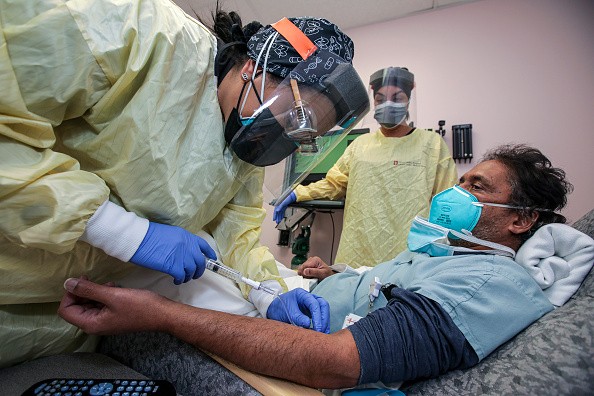Monoclonal antibodies have been making the rounds lately as a purported alternative to the COVID-19 vaccine, as Florida Governor Ron DeSantis has been pushing for the establishment of large sites that allow Floridians to get the treatment.
However, not a lot of people are aware of what these really do. As a result, ABC Action News took the liberty of delving deeper into how monoclonal antibodies work, and the answers are quite interesting, to say the least.

Monoclonal antibodies take advantage of the human body's ability to protect itself against infections. But something like COVID-19 is a different story. Since it's classified as a novel virus, the body often doesn't have the right antibodies required to recognize the disease.
This is where monoclonal antibodies come in. As per the U.S. Department of Health and Human Services, these mAbs are specifically designed in laboratories to help fight a very particular infection. In this instance, it's COVID-19. If administered with the right dosage, these antibodies can help fight off the coronavirus and even help some people avoid getting hospitalized.
There is one catch about monoclonal antibodies, however: not everyone can have them. According to CBSNews, the treatment can only be administered after a coronavirus infection within ten days of the appearance of the first symptoms and specifically before the symptoms get too severe. This is what separates it from a typical COVID vaccine, which can be administered to prevent an infection in the first place.
Monoclonal Antibodies: A Little Iffy in the Wake of Delta
More and more Americans seem to be opting for monoclonal antibodies in the wake of new surges caused by the Delta variant. But therein lies the problem. While these antibodies are effective in specific circumstances, Delta's specific traits are rendering it almost useless.
Since monoclonal antibodies can only be given to a patient who's already got the coronavirus, it presents a multitude of complications. For one, many patients stricken with Delta have moderate to severe symptoms. Any patient with a major oxygen deficiency, continuous high fever, and dehydration is considered too sick to get monoclonal antibodies.
All of these symptoms (lack of oxygen, high fever, dehydration) are typical Delta variant red flags. Not to mention, the new COVID-19 variant is as contagious as Chickenpox, which then puts doctors in a race against time. Add this up to the fact that patients need to wait ten days after the first symptoms appear, and you have a massive problem on your hands.
Vaccines Still Offer THE BEST Protection
Remember the old adage "prevention is better than cure?" That phrase perfectly applies to the current situation. A COVID-19 vaccine will always offer the best protection against the virus, whether it's protection from being infected or preventing hospitalization, severe illness, and death. It's really unwise to wait until you get sick before you get the protection you need.
Read also: Serbian Hermit Living in Cave for 20 Years Learns About COVID-19 Pandemic, Gets Vaccinated
This article is owned by Tech Times
Written by RJ Pierce
ⓒ 2025 TECHTIMES.com All rights reserved. Do not reproduce without permission.




